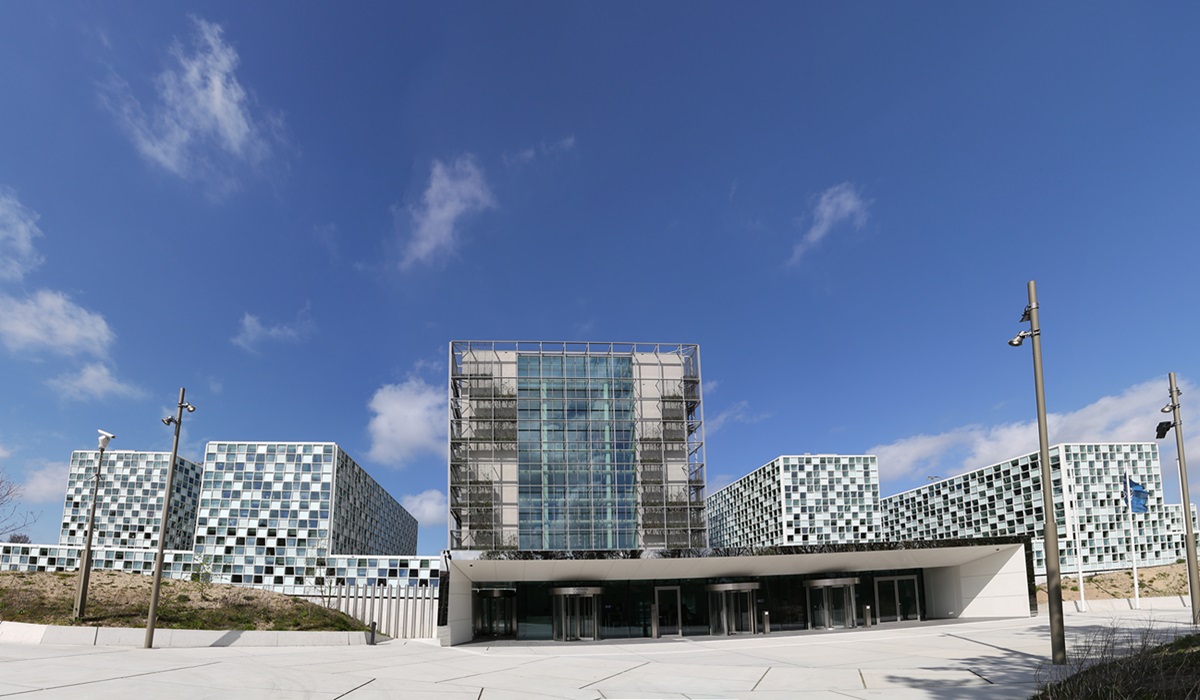US Politicians Threaten International Criminal Court, Undermining Global Justice
- Kingston Bailey
- Trending
- May 29, 2024

Image Credit, ICC
In a move that underscores the increasing hostility of American elected officials towards international judicial bodies, prominent U.S. Senators, Congresspeople, and House leader Johnson have launched a vehement attack on the International Criminal Court (ICC). This aggressive stance, articulated through scathing letters and public calls for sanctions, highlights a disturbing double standard and threatens the foundational principles of international justice.
Leading the charge, Senator Lindsey Graham has vocally supported imposing sanctions against the ICC. His justification? The fear that if the ICC can issue arrest warrants for individuals in Israel and other nations deemed to have committed war crimes, it could potentially do the same for American citizens involved in conflicts such as Afghanistan. In his candid remarks, Graham inadvertently revealed a troubling admission: American actions in Afghanistan and other regions may not withstand the scrutiny of international law.
This candidness strips away the diplomatic veneer, exposing a raw and unsettling reality. By explicitly opposing the ICC’s jurisdiction over American citizens, these officials seem to acknowledge that the actions taken by the U.S. military and its operatives might not always align with the standards of international law.
The aggressive stance taken by U.S. officials raises an important question about global justice and hypocrisy. What if officials from other nations threatened U.S. Supreme Court justices or imposed sanctions on American judicial authorities? The response from the U.S. would undoubtedly be swift and severe. This double standard highlights a dangerous precedent where powerful nations can selectively adhere to or dismiss international legal norms.
Courts, including the ICC, exist as mechanisms for checks and balances, essential for upholding justice and accountability on a global scale. When powerful nations undermine these institutions, it not only erodes their legitimacy but also threatens the very fabric of international law and order.
This isn’t the first time the U.S. has targeted the ICC. Under the Trump administration, the U.S. government imposed sanctions on ICC officials, including travel bans and asset freezes. These measures were in response to the ICC’s investigations into potential war crimes committed by American forces in Afghanistan. While these sanctions were later lifted by the Biden administration, the precedent set a dangerous example of how political power can be wielded to intimidate and obstruct international judicial processes.
The current rhetoric from American lawmakers suggests that a similar, if not more severe, approach could be revisited. Such actions not only undermine the ICC’s authority but also send a message to other nations: compliance with international law is optional for powerful states. This selective adherence to international norms is not just hypocritical but deeply detrimental to the global rule of law.
The implications of this aggressive stance towards the ICC are far-reaching. At its core, the ICC serves as a global court of last resort, tasked with prosecuting individuals for the most heinous crimes: genocide, war crimes, and crimes against humanity. By threatening and sanctioning the ICC, the U.S. is effectively shielding itself and its allies from accountability. This undermines the very essence of international justice and emboldens other nations to disregard global legal standards.
Moreover, this antagonism towards the ICC reflects a broader crisis within the American judicial system. There is a growing perception that both lower and federal courts in the U.S. are increasingly politicized and corrupt. These sentiments have now extended to the highest court in the land, the U.S. Supreme Court. Allegations of partisanship and unethical conduct among lifetime-appointed justices have severely tainted the court’s reputation.
The erosion of judicial legitimacy in the U.S. parallels the country’s diminishing respect for international judicial bodies. When the integrity of courts is compromised, whether domestically or internationally, it undermines public confidence in the rule of law. Courts are supposed to be impartial arbiters of justice, immune to political influence. However, the current climate suggests a disturbing trend where judicial bodies are increasingly subject to political pressures and threats.
This situation becomes particularly perilous when juxtaposed with international relations. If the U.S. can so blatantly disregard the authority of the ICC, what is to stop other countries from doing the same? The resulting global landscape would be one where might makes right, and legal standards are contingent on political power rather than justice.
The current antagonism towards the ICC by American lawmakers highlights a fundamental problem: a lack of consistency and integrity in upholding international justice. The selective application of legal standards undermines the credibility of both domestic and international judicial bodies. It is imperative that the U.S. and other powerful nations uphold the principles of justice and accountability, irrespective of political considerations.
Threatening and sanctioning the ICC sets a dangerous precedent that erodes the very foundation of international law. It emboldens other nations to disregard global judicial norms and undermines efforts to hold individuals accountable for the most egregious crimes. As global citizens, we must advocate for a world where justice is not a privilege of the powerful but a right for all. Only through consistent and unwavering support for international judicial bodies like the ICC can we hope to achieve a fair and just global order.
In this critical juncture, the actions of U.S. lawmakers serve as a stark reminder of the need for vigilance in protecting the integrity of judicial institutions. The path forward requires a recommitment to the principles of justice, accountability, and the rule of law, both at home and abroad. The world is watching, and the future of international justice depends on the choices we make today.








